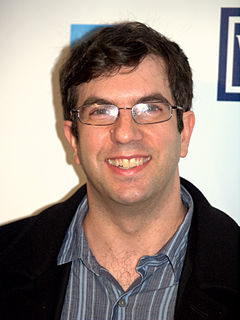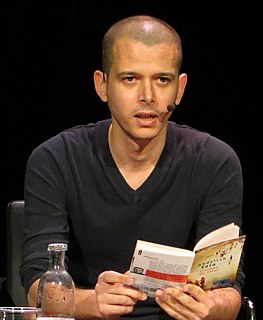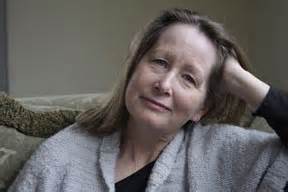A Quote by A. J. Jacobs
I’m not a fan of ‘write what you know.’ If you don’t know, find out. I knew nothing about the Bible before I started writing ‘The Year of Living Biblically.’ That was kind of the point – to learn.
Related Quotes
For me writing is a long, hard, painful process, but it is addictive, a pleasure that I seek out actively. My advice to young writers is this: Read a lot. Read to find out what past writers have done. Then write about what you know. Write about your school, your class, about your teachers, your family. That's what I did. Each writer must find his or her own kind of voice. Finally, you have to keep on writing.
I myself, as I'm writing, don't know who did it. The readers and I are on the same ground. When I start to write a story, I don't know the conclusion at all and I don't know what's going to happen next. If there is a murder case as the first thing, I don't know who the killer is. I write the book because I would like to find out. If I know who the killer is, there's no purpose to writing the story.
I started to write because of my dream to become a filmmaker. I got to know about a film school in Paris and it was my goal to get there. To do that I knew I had to learn French. In order to practice I started to write journals in French. The effort I made to master what I regarded a bad thing - a language owned by the rich Moroccans - brought me the ability to write.
I've grown up with a piano in the house, and that's where I started to be able to learn things by ear. Guitar kind of happened, and I was using it just for writing at first. Then, I was writing so much that I began to realise that I knew how to play, and that's when I started getting nerdy about it.
After I quit being a lawyer in '95, I was having a lot of trouble writing. Then I read somewhere that Willa Cather read a chapter of the Bible every day before she started work. I thought, 'Okay, I'll try it.' Before each writing session, I started to read the Bible like a writer, thinking about language, character, and themes.
About a year after (my stories began being published), magazine editor George Scithers, suggested to me that since I was so new at being published, I must be very close to what I had to learn to move from fooling around with writing to actually producing professional stories. There are a lot of aspiring writers out there who would like to know just that. Write that book.SFWW-I is that book. It's the book I was looking for when I first started writing fiction.
To know that one does not write for the other, to know that these things I am going to write will never cause me to be loved by the one I love (the other), to know that writing compensates for nothing, sublimates nothing, that it is precisely there where you are not--this is the beginning of writing.
There was no real strategic decision about editorial tone. It was kind of a write whatever you want to write, and we'll see how it goes. I think that we lucked out in that all of the women who started writing at Feministing.com were really funny, and I don't think that's something people are used to seeing or hearing when they read feminism. You know, you think feminism and you kind of think academic, women's studies, dry, humorless; there are all of these stereotypes that go along with what feminist thought is and what feminist writing is.
You have to remain strong. That's the kind of filmmaker I want to encourage. Orson Welles was the one who said, you know, you can learn anything you need to know about filmmaking- that's camera, sound, celluloid, video at this point- in four hours. It has nothing to do with anything. It has nothing to do with it... It has to do with what you want to say. If you feel you have something to say, you'll find that way to get it said, on film, and not let anyone or anything chip away at that or tarnish it, because it's something special and precious.

































